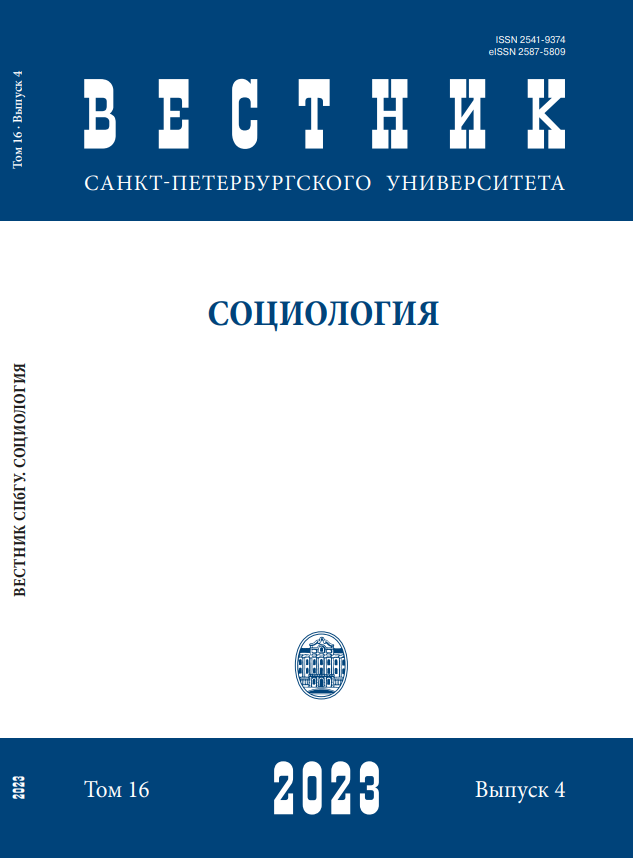Distance employment as a factor of parental well-being
DOI:
https://doi.org/10.21638/spbu12.2023.406Abstract
The article presents the results of a qualitative study aimed at exploring and characterizing the perceptions of working parents with different types of employment about the impact of remote working conditions on the parameters of parental well-being. The study used focus group techniques and individual in-depth interviews. The sample was segmented by two criteria: presence/absence of children under 14; presence/absence of a spouse/partner. Positive, negative, and neutral narratives of working parents about the relationship of remote work to parental well-being dimensions were systematized. The results obtained allow us to conclude that distance employment has an advantage over other types in terms of combining parenthood with work. We have identified two conditions for the realization of this advantage: the ability to flexibly build a work schedule and at the right time to be where it is necessary for the child. The advantages of the remote employment can increase the resources of parental well-being if employees manage to eliminate or minimize the problematic aspects of combining home and work. However, this format of employment is not universally valuable, but requires certain efforts and conditions to achieve parental well-being. It is concluded that in order to correctly study the degree and nature of the impact of the distance employment on parental well-being, it is necessary to segment distance employment in more detail by modes of work. The scientific result of the research is to clarify the basic parameters of parental well-being and the nature of possible positive and negative effects of distance employment on the parameters of parental well-being. The used methodological approach and research tools have been successfully tested and can be used for further research into different types of employment, determination of optimal working conditions and barriers to parental well-being.
Keywords:
parenting, parental well-being, digitalization, distance employment, hybrid employment, non-standard employment, focus group, in-depth interview
Downloads
References
Downloads
Published
How to Cite
Issue
Section
License
Articles of "Vestnik of Saint Petersburg University. Sociology" are open access distributed under the terms of the License Agreement with Saint Petersburg State University, which permits to the authors unrestricted distribution and self-archiving free of charge.




